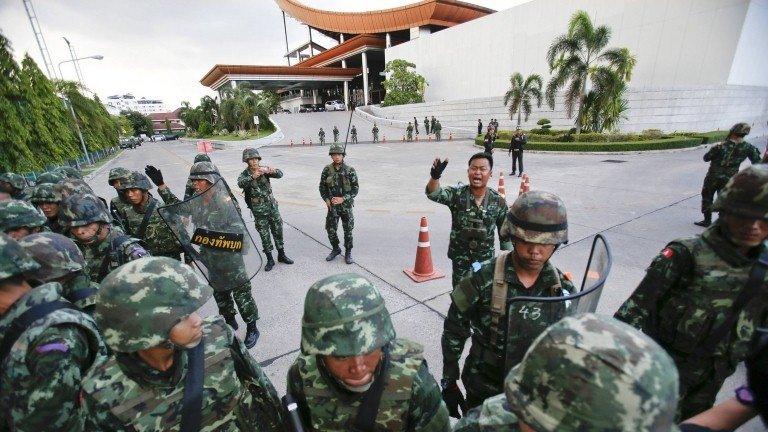Thailand protests: Anti-government march in Bangkok
- Published
Footage from the scene shows thousands marching, in what political analyst Verapat Pariyawong says is a "tricky situation"
Thousands of anti-government protesters have resumed demonstrations in Thailand demanding the resignation of Prime Minister Yingluck Shinawatra.
Large crowds carrying Thai flags marched along several routes from the main park in the capital of Bangkok.
It was the first major protest rally to take place since a Thai court ruled the 2 February general election invalid.
Until recently, Thailand had seen an ease in tensions since anti-government demonstrations began four months ago.
Anti-government activists want Prime Minister Yingluck to step down and the political system to be reformed.
At the height of the demonstrations, which began in November, protesters shut down key road junctions in Bangkok and blockaded government ministries.
'Tens of thousands'
Saturday's demonstrators, led by protest leader Suthep Thaugsuban, marched from Bangkok's Lumpini Park along six different routes through the city centre.
''We want to tell the government that the people don't accept them anymore and the people really want reform of the country immediately,'' Mr Thaugsuban told reporters.
He warned the authorities against attempting to organise a re-run of the elections, saying any future poll would be boycotted.
The march comes a week after Thailand's Constitutional Court ruled the 2 February general election invalid.
The ruling party was expected to win the poll, but the opposition boycotted it and protesters disrupted voting, meaning the election has not been completed.
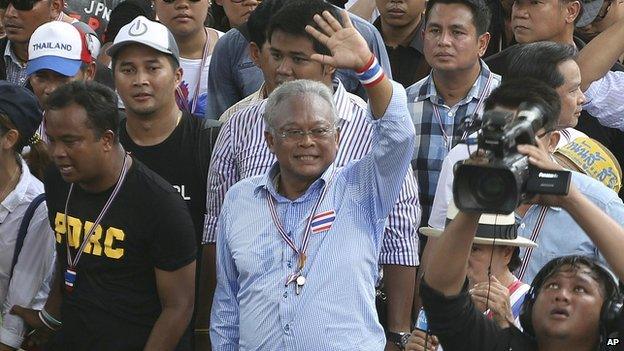
Saturday's demonstrations were led by protest leader Suthep Thaugsuban (centre)
The protesters, who are mainly urban and middle class, want Ms Yingluck's government replaced by an unelected "people's council".
They accuse the Thai government of being run by Prime Minister Yingluck's brother and ousted former leader, Thaksin Shinawatra.
Ms Yingluck, who has dismissed calls to step down, is currently facing charges of negligence over a government rice subsidy scheme, which critics say was rife with corruption.
She is expected to submit her defence to the National Anti-Corruption Commission on Monday.
If found guilty, Ms Yingluck could be removed from office and face a five-year ban from politics.
At least 23 people have died and hundreds have been injured in the course of the recent demonstrations.
- Published18 March 2014
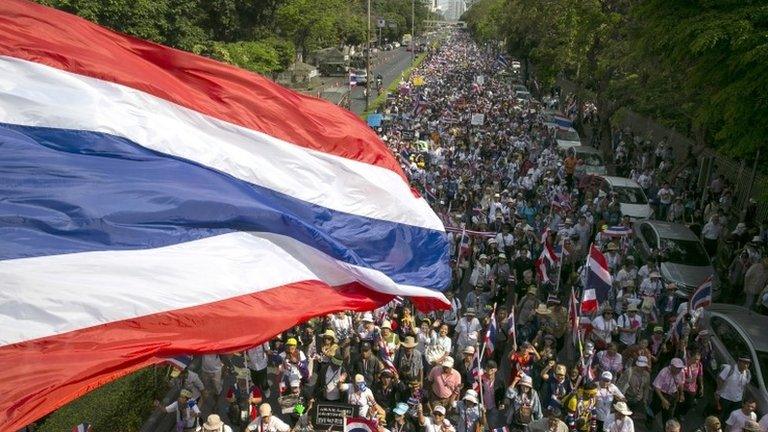
- Published7 March 2014
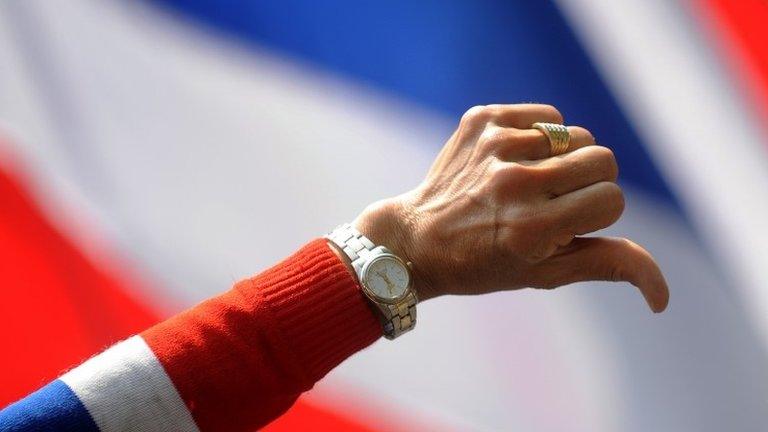
- Published6 February 2014
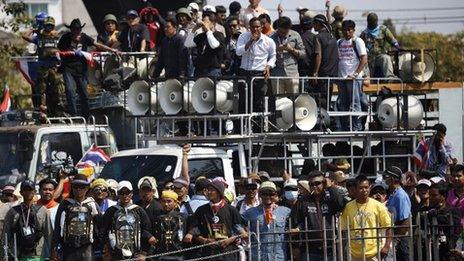
- Published22 May 2014
